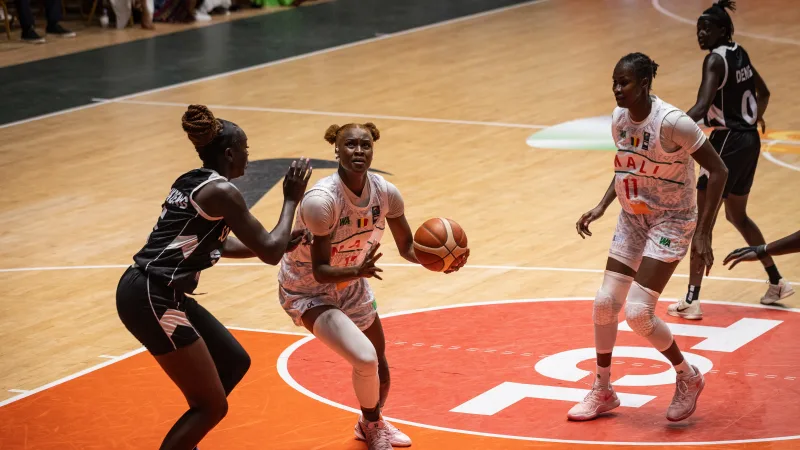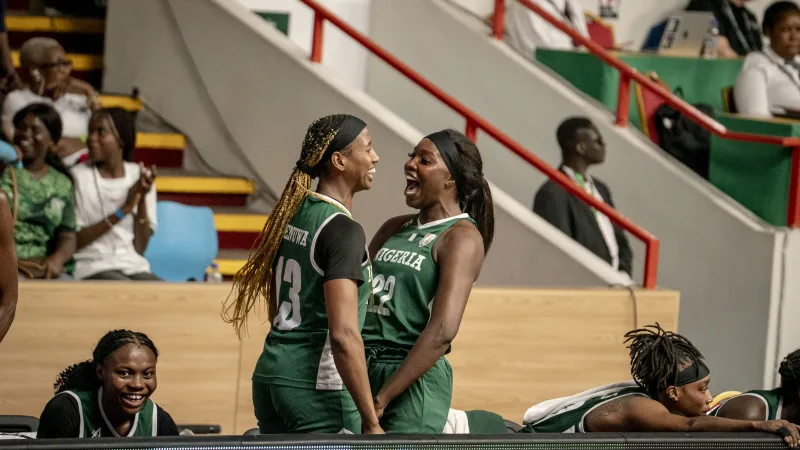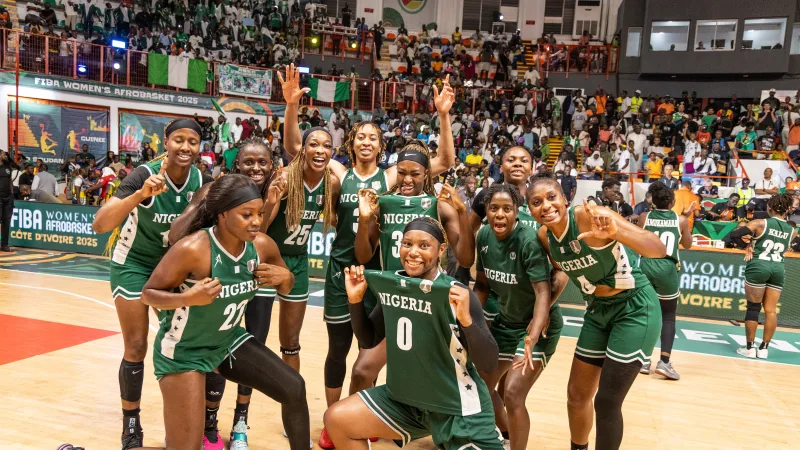The 2025 FIBA Women’s AfroBasket has reached its climax, with two undefeated powerhouses—Nigeria and Mali—set to battle for continental glory.
The showdown takes place today, Sunday, August 3, at the Palais des Sports Treichville in Abidjan, Côte d’Ivoire. Will the trophy head to Abuja or Bamako?
Both teams have been dominant throughout the tournament, breezing through the group stage and knockout rounds with impressive performances. Their journey to the final has been marked by grit, skill, and a fierce determination to claim Africa’s top basketball prize.

A Rivalry Rekindled
According to FIBA, Nigeria and Mali have met six times since the 2011 AfroBasket in Bamako. That year, Mali, playing on home soil, dashed Nigeria’s title hopes with a 71–62 semifinal win. In 2013, Mali repeated their dominance in Maputo, Mozambique, defeating Nigeria twice—78–45 in the group stage and 57–50 in the fifth-place game.
However, the tide turned in 2017. Nigeria edged Mali 48–47 in the semifinals in Bamako, marking the beginning of their eight-year reign over African women’s basketball. Nigeria continued their dominance with victories over Mali in the 2019 semifinals (79–58 in Dakar) and the 2021 final (70–59 in Yaoundé).
Since 2011, both teams have claimed three wins each in their head-to-head matchups, making today’s final a true decider.

Road to the Final
Nigeria topped Group D with wins over Mozambique and Rwanda, then crushed Cameroon 83–47 in the quarterfinals and edged Senegal 75–68 in the semifinals.
Mali dominated Group B, beating South Sudan and Cameroon. They then dispatched Cameroon 86–68 in the quarterfinals and South Sudan 76–50 in the semifinals.
A Familiar Final
This year’s final is a rematch of the 2021 championship game, where Nigeria triumphed 70–59. Remarkably, eight players from each team who featured in that final are back in action today.
Mali’s returning players: Rokia Doumbia, Maimouna Haidara, Sika Koné, Djeneba N’Diaye, Aminata Sangaré, Fanta Sissoko, Kadidia Maiga, Alima Dembélé
Nigeria’s returning players: Amy Okonkwo, Pallas Akpanana, Sara Ogoke, Promise Amukamara, Murjunatu Musa, Ezinne Kalu, Victoria Macaulay, Nicole Enabosi
The coaching benches have changed since 2021. Nigeria was then led by Otis Hughley Jr., now coaching Senegal, while Mali’s former head coach Luis Brizuela Carrion is part of the current staff but not on the bench.

Stats That Matter
Scoring: Nigeria leads the tournament with 77.5 points per game; Mali averages 73.
Shooting Efficiency: Nigeria shoots 42.6% from the field and 26.4% from three; Mali trails with 41% and 21%, respectively.
Rebounding: Mali ranks second overall with 48.5 rebounds per game; Nigeria averages 42.5.
Ball Movement: Mali leads in assists with 22 per game; Nigeria averages 17.5.
Defense: Nigeria averages 5.3 blocks and 1.3 steals per game.
Efficiency Ratings: Nigeria (94.8), Mali (89.9)

Players to Watch
Amy Okonkwo (Nigeria): The reigning MVP leads her team with 12.8 points per game and is a threat from all over the court.
Djeneba N’Diaye (Mali): Mali’s top scorer with 12.5 points per game.
Sika Koné (Mali): A dominant presence near the basket, averaging 10.5 rebounds and two double-doubles. She boasts the highest efficiency rating (14.8) heading into the final.
Ezinne Kalu (Nigeria): A clutch performer who disrupts opponents with her defense and delivers when it matters most.

What’s at Stake
The top four teams from AfroBasket 2025 will advance to the 2026 Women’s Basketball World Cup qualifiers. However, the champion earns a direct ticket to the World Cup.



